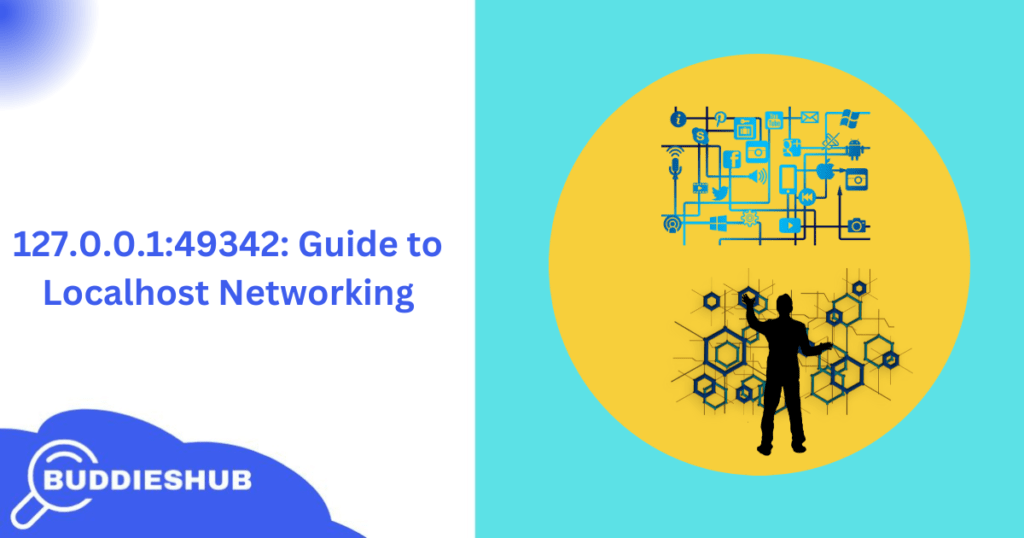Introduction
When you’re dabbling in the world of networking or software development, the term “127.0.0.1:49342” might seem like jargon. But don’t worry, it’s simpler than it sounds! This guide breaks down everything you need to know about localhost networking and why it’s a crucial part of your technical toolkit.
What is 127.0.0.1?
At its core, 127.0.0.1 is the IP address that points back to your own device. It’s like your computer saying, “Hey, let’s talk to myself!” Commonly referred to as “localhost,” this address is essential for creating a loopback connection.
Why 127.0.0.1 Matters
Ever wonder why developers rave about localhost? It’s because it allows you to test applications, troubleshoot issues, and simulate server environments—without ever needing to go online.
Common Use Cases
Local Development: Perfect for building websites or apps before deploying them.
Testing Applications: Test how systems interact in a controlled space.
Troubleshooting: Identify issues in your code or configuration.
Security Implications
While localhost is inherently secure since it doesn’t interact with the internet, it’s still wise to safeguard your environment. Misconfigurations could expose local services unintentionally.
What Does Port 49342 Represent?
Now, let’s tackle the second part of the topic: the port. A port is like a doorway through which data enters or leaves your computer. Port 49342 is a dynamic port, often used temporarily for specific tasks.
The Role of Ports in Networking
Think of ports as post office boxes. Each one handles a unique kind of data. Without them, your system wouldn’t know where to send or receive information.
Dynamic Ports Explained
Ports between 49152 and 65535 are dynamic, meaning they’re not permanently assigned to a specific service. They’re used as needed—perfect for temporary local tasks.
How 127.0.0.1:49342 Works Together
By combining 127.0.0.1 and port 49342, you get a localized communication channel. It’s like having a private meeting room in your computer where processes can chat.
Example Scenarios
Testing a web server locally before making it live.
Debugging APIs in a sandboxed environment.
Debugging with 127.0.0.1:49342
Having trouble? Here’s how to approach debugging:
Ensure no other application is occupying port 49342.
Check your firewall settings; sometimes, they block localhost traffic.
Common Errors and Fixes
Port Already in Use: Use tools like netstat to identify the conflicting process.
Connection Refused: Verify the service linked to the port is running.
Setting Up Your Localhost with 127.0.0.1:49342
Ready to dive in? Let’s set up your localhost step by step.
Configuring Your System
Install necessary software (like a web server or database).
Adjust your firewall to allow localhost traffic.
Tools to Use
Postman: Test APIs effortlessly.
Wireshark: Analyze network traffic.
XAMPP: Set up a local server easily.
Testing Your Setup
Fire up your application and try accessing it via http://127.0.0.1:49342. If it works, you’re good to go!
Advantages of Localhost Networking
Why do so many professionals swear by localhost? Let’s find out.
Cost-Effective Solutions
Running a localhost server is free! There’s no need for cloud subscriptions or external hosting.
Isolation for Testing
Testing locally means no accidental changes to your live environment. It’s like having a practice run before the big game.
Conclusion
127.0.0.1:49342 might sound technical, but it’s a powerhouse for developers and testers alike. From building applications to troubleshooting, this simple combination of IP and port opens up endless possibilities.
FAQs
1. What’s the difference between localhost and 127.0.0.1?
Localhost is just a friendly name for the IP address 127.0.0.1. They mean the same thing!
2. Why is port 49342 used?
Port 49342 is a dynamic port, ideal for temporary local tasks.
3. Can I use 127.0.0.1 for internet applications?
No, 127.0.0.1 is limited to your device and can’t interact with external networks.
4. How do I find which process is using port 49342?
Run netstat -ano in your terminal to identify the process using a specific port.
5. Is localhost networking safe?
Yes, as long as your system is configured correctly and unnecessary services are disabled.



